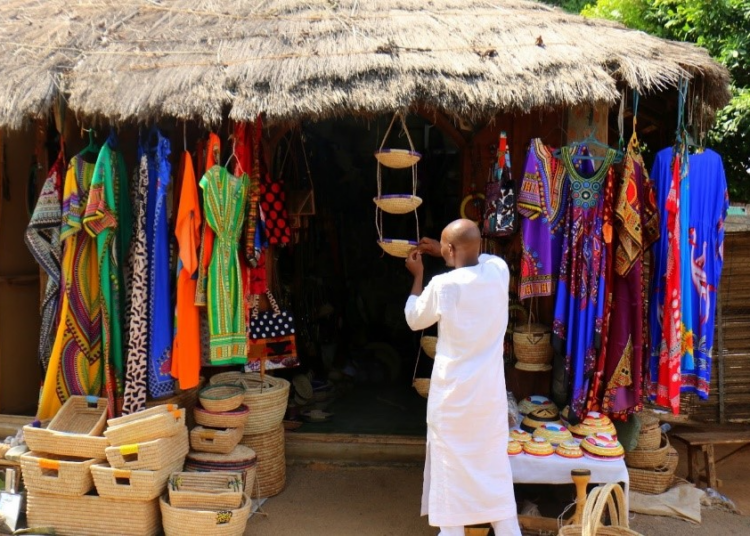National Council of Arts and Culture (NCAC), has reopened its Arts & Crafts Village in Abuja years after it was shutdown.
The creative hub was shut down by the administration of Otunba Olusegun Runsewe owing to a host of illegal and criminal activities.
However, the new Arts and Crafts Village is a product of a public private partnership (PPP).
With the reopening of the space, the director general of NCAC, Otunba Olusegun Runsewe, announced his vision to present Nigerians with the best cultural market in Africa with its launch of a new marketing strategy which includes a toll gate, a night cultural market, a pharmacy offering free blood sugar tests to visitors of the market, and a birthday shop.
“The Cultural Night Market is the first of its kind in Africa. Between six and nine months of operating the village, we will operate it to a night market. There is nowhere you start the night market the same day. You have to operate first, get people acquainted with the idea. So, one can leave the office at 5pm to the village to shop,” he said.
Visitors to the space will be required to pay a N100 to access it, another N100 to use the newly erected restroom, and N100 to park their vehicles. The council in partnership with a world standard pharmacy will host a pharmaceutical space with free medical tests including blood sugar tests for visitors to the space. Other proposed facilities in the cultural hub include an information/complaint centre-to enhance quality products and services; and a quarterly media interaction session on developments within the village.
To avoid a previous occurrence where renters (of the 250 available shops) accumulated electricity and security bills worth N8.5billion and N4billion respectively, renters will pay N300,000 annually per shop, with a N100,000 refundable/rollover maintenance fee. According to the DG, part of the rent will be channeled to installing a pre-paid meter per shop, and the replacement of the shops’ wooden doors and windows to metal ones. The maintenance fee is geared towards operating costs such as security etc.
Further new additions to the village include a business centre, a restaurant -with a recreation centre and traditional food centre – six geo-political zones restaurant, a photoshop, an ATM gallery – with a minimum of four banks, a traditional salon and – a henna decorating shop.
“The aim is to raise four Dupes (a popular gele maker in Lagos who now drives a G-Wagon Mercedes) from this space. We will create 300 jobs as the space is reopening. 180 of these jobs are direct employment, and 120 indirect employment. There will also be skills acquisition/empowerment programmes for Nigerians, and a children’s excursion event,” said the DG.
To ensure that the crafts shops are not overtaken by the rich, or by a singular craft, Runsewe said there will be no third party or middleman acquisition. Renters will go through the NCAC.
“In the past, over 70 per cent of the shops were rented by tailors. This is not a tailoring factory. It is a cultural centre to protect the interest of artistes, artisans and those that produce artworks as is done the world over. By my discretion, there will be no more than five to six tailors in the space. We will have a complaints centre, where if you buy anything in the centre, and you are not satisfied, you complain. When renters know people can make complaints, they’d be careful about what they sell.”
To discourage miscreants, he said co-renting/split renting, sleepovers, hawking, laundry and drying of laundered clothes in the village are prohibited.
“The village opens 7am to 6pm.The era of owning a shop and renting a part of it to others has come to an end. It is either you have a shop or you have no business in the village. We have built 20 modern toilets in the village, in addition to hosting a police station. Any misbehaviour will be dealt with immediately by the police,” he said.











